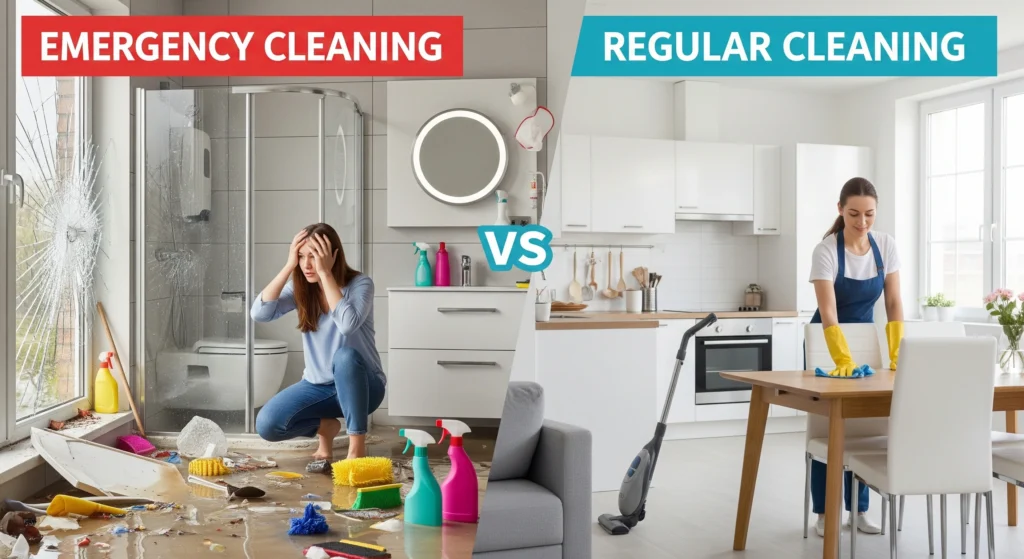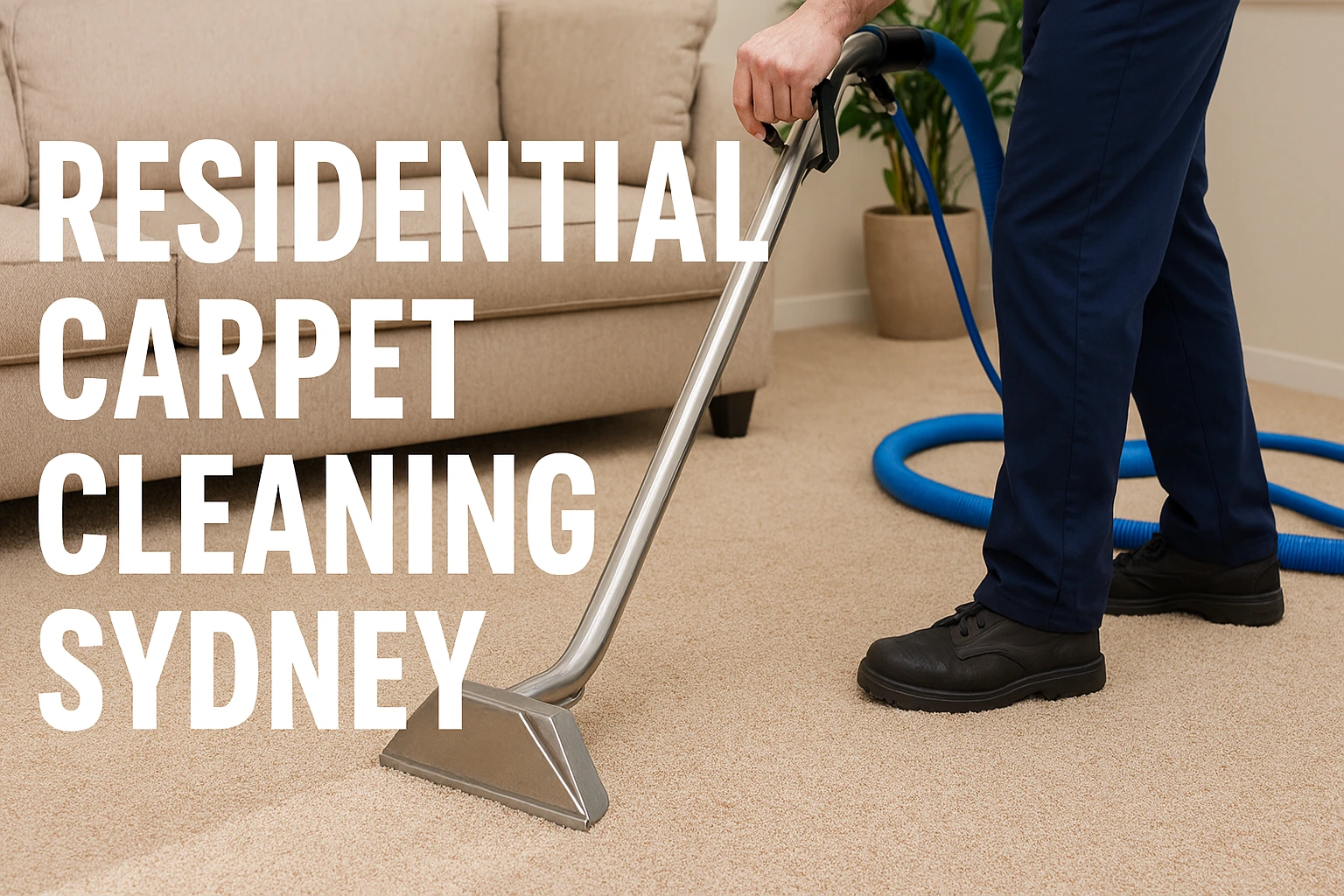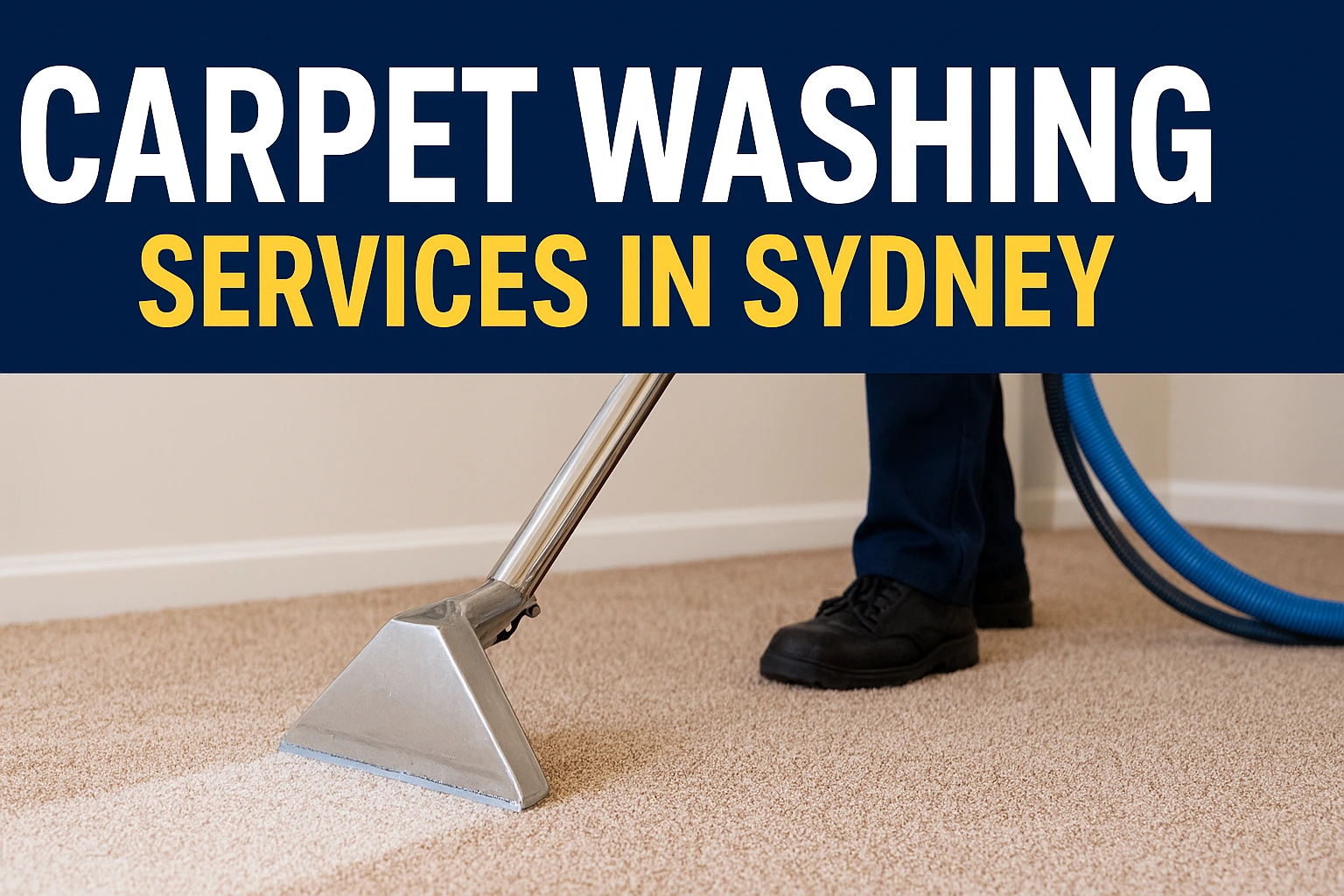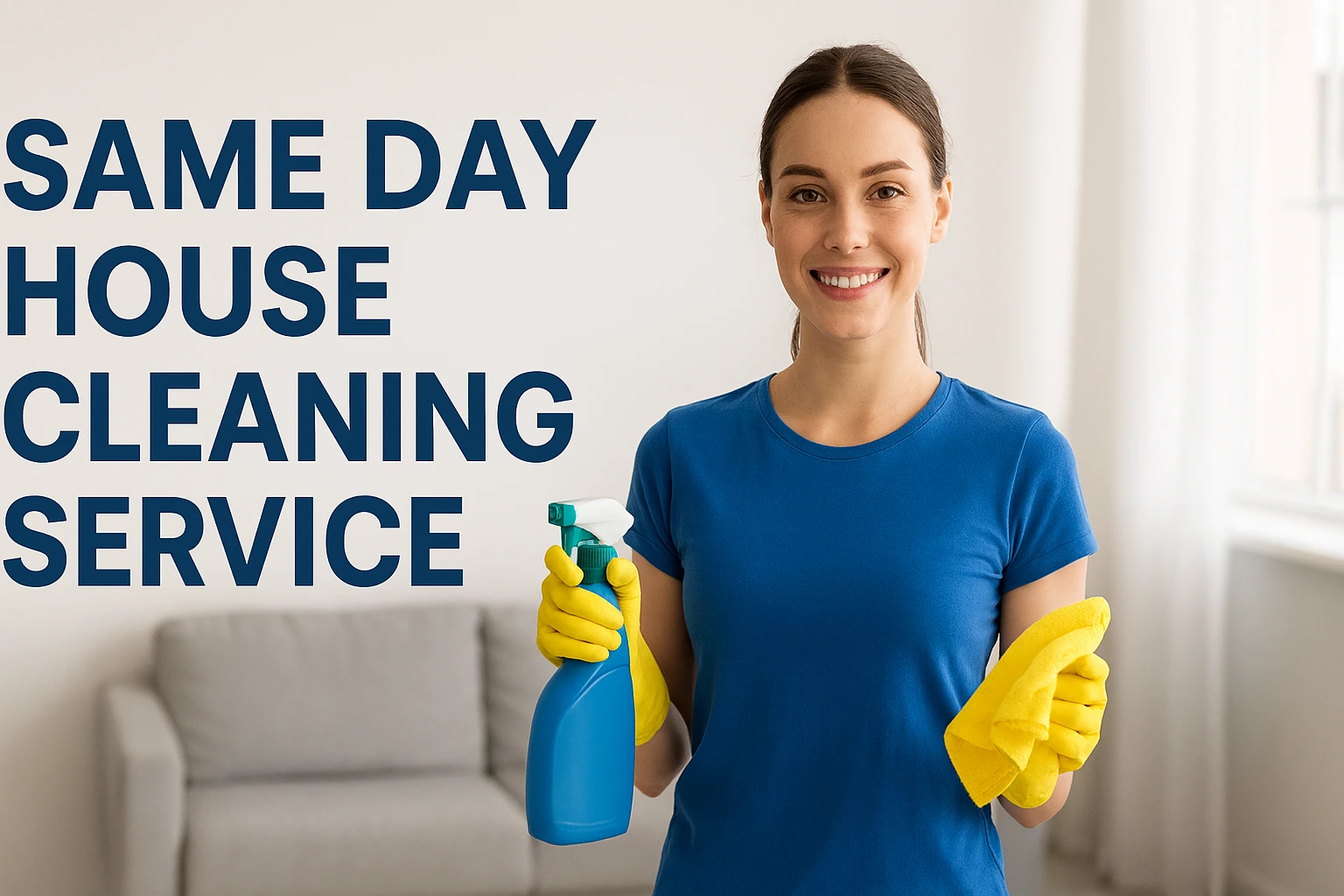
In today’s fast-moving world, maintaining a hygienic, pleasant environment is more important than ever—whether you manage a business, oversee facilities, or run a home. However, not all cleaning needs are created equal. There’s a vast difference between emergency cleaning and regular cleaning. Understanding these differences is key for property owners and facility managers—and crucial for anyone seeking professional Sydney cleaning experts ready for any situation.
This comprehensive guide explains how emergency cleaning stands apart from regular cleaning, explores why both matter, and highlights when you need one service over the other.
What is Emergency Cleaning?
Emergency cleaning refers to rapid-response cleaning services required to address sudden, often hazardous situations. These typically involve urgent, unplanned messes or incidents, and require trained professionals, specialized equipment, and immediate action. The goal is to minimize property damage, mitigate health risks, and restore safety and normal operations as quickly as possible.
Common Scenarios for Emergency Cleaning
- Floods, water leaks, or sewage backups
- Fire and smoke damage remediation
- Chemical spills or hazardous material cleanup
- Crime scene and trauma cleanup
- Post-accident or biohazard incidents
- Urgent stain or spill removals that threaten permanent damage
Emergency cleaning is never scheduled. It’s reactive and requires a team that can mobilize quickly, bringing specialized knowledge and advanced cleaning tools to manage potentially dangerous environments.
What is Regular Cleaning?
- Dust and allergen removal
- Cleaning and disinfecting surfaces
- Vacuuming carpets and upholstery
- Mopping floors
- Bathroom and kitchen sanitation
- Trash removal and replenishing supplies
Regular cleaning’s main goal is to maintain a consistently clean environment, improve indoor air quality, and prolong asset lifespans (such as carpets or upholstery).
Key Differences: Emergency Cleaning vs. Regular Cleaning
Below you’ll find a side-by-side breakdown of the major differences:
Feature | Emergency Cleaning | Regular Cleaning |
|---|---|---|
Timing | Unplanned, immediate response required | Scheduled, routine intervals |
Purpose | Address sudden contamination, hazard, or damages | Prevent build-up, maintain hygiene |
Scope | Focused on affected areas, urgent mitigation | Whole facility/home, general upkeep |
Equipment/Expertise | Specialized tools, advanced PPE, expert teams | Standard cleaning supplies, trained staff |
Cost | Higher (due to urgency, overtime, specialized materials) | Lower, predictable, often contracted |
Examples | Flood/remediation, biohazard, chemical spill, fire cleanup | Office cleaning, weekly home service |
Health & Safety | Immediate risk mitigation (biohazard, slip, infection) | Ongoing health standards & appearance |
Outcome | Restore safety and normalcy ASAP, prevent secondary damage | Prevent dirt build-up, maintain order |
Why is Emergency Cleaning So Important?
Every minute counts when disaster strikes. Without rapid response, situations involving water or hazardous materials can escalate, causing:
- Structural damage (from moisture or fire)
- Mold and bacteria growth within hours
- Poor air quality affecting occupant health
- Safety hazards (slip/fall risks, contamination)
- Financial loss due to downtime or replacing assets
Professional emergency cleaning teams are equipped with industrial vacuums, dehumidifiers, extraction machines, and disinfectants. They understand regulatory requirements for handling biohazards or chemicals, and follow strict protocols to protect everyone involved.
When Do You Need Emergency Cleaning Services?
You require emergency cleaning when:
- Water, sewage, or hazardous spills occur
- There’s been a trauma, crime scene, or exposure to potentially infectious materials
- Storm or fire damage leaves property exposed and at risk
- Immediate action is needed to salvage property or prevent operational shutdown
If there’s any doubt about safety—such as potential mold growth, bloodborne pathogens, or chemical risks—don’t rely on standard cleaning methods. Call certified emergency cleaning professionals, like Sydney Cleaning Experts, to ensure the situation is handled safely and lawfully.
When Is Regular Cleaning Enough?
Regular cleaning is the cornerstone of a healthy environment. Use it to:
- Prevent odors, dust, and microbial growth
- Maintain professional standards for guests, customers, or staff
- Extend the lifespan of floors, fabrics, and furnishings
- Reduce allergy symptoms and improve indoor air quality
Regular cleaning is designed to keep common spaces fresh, but it isn’t structured to handle dangerous or sudden contamination.
What to Expect From a Professional Emergency Cleaning Team
- 24/7 availability and rapid response
- Onsite assessment and safety plan
- Use of industrial-grade equipment and PPE
- Compliance with industry and local regulations
- Proper disposal of hazardous materials
- Restoration and remediation strategies to salvage property
Emergency cleaning professionals understand the pressures involved, including insurance documentation, regulatory compliance, and minimizing business downtime.
How to Choose the Right Service for Your Needs
- Assess the situation: Is the problem sudden and potentially hazardous? Emergency cleaning is best.
- Maintain regular schedules: For ordinary cleaning and facility upkeep, schedule regular cleaning.
- Ask about certifications: Ensure your provider is qualified for biohazard or hazardous material cleanups.
- Check availability: Emergency cleaning teams should be able to respond rapidly, day or night.
- Get clear estimates: Understand the scope, methods, and timeline for each type of service.
As Sydney cleaning experts, we recommend everyone in charge of property management have a plan for both regular and emergency cleaning situations. Keep contact numbers handy and review protocols for emergencies with your team.
Emergency Cleaning: Fast Facts
- Speed saves assets. Minutes matter after a spill or flood—rapid cleaning prevents permanent loss and health hazards.
- Expertise is non-negotiable. Only professionals should handle biohazards or chemical spills to ensure safety and legal compliance.
- Regular cleaning prevents emergencies. Routine care reduces dust, allergens, and wear—but can’t replace expert intervention during disasters.
Final Thoughts
Both emergency cleaning and regular cleaning are essential for a safe, clean environment. While regular cleaning preserves standards and prevents most issues, emergency cleaning protects you from disaster’s worst effects—and ensures your workplace or home is restored to a safe, functional state as quickly as possible.
If you’re facing an urgent situation in Sydney, don’t wait—contact Sydney Cleaning Experts for immediate, professional emergency cleaning services. And remember: integrating both regular and emergency cleaning into your facility plan gives you protection and peace of mind year-round.
Ready for anything, any time. That’s the Sydney Cleaning Experts promise.





